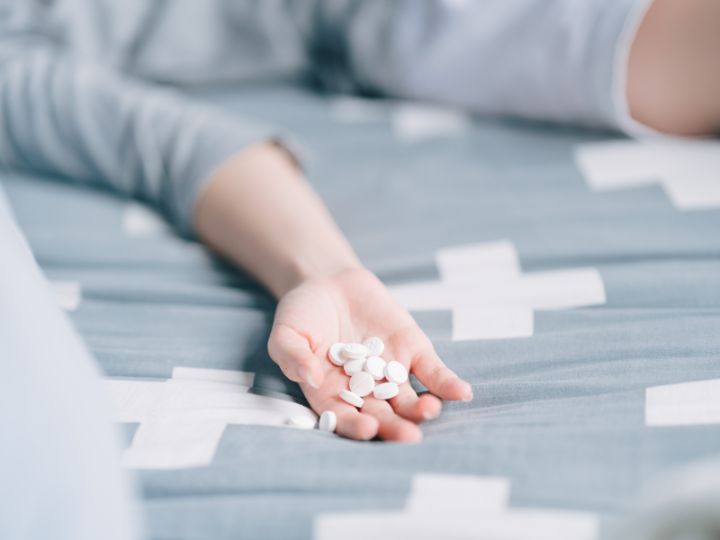A drug overdose can happen to anyone, regardless of age, background, or substance used. When it occurs, it’s a medical emergency that requires immediate attention. Recognizing the signs of a drug overdose can save a life.
Premiere Addiction Recovery, a drug rehab in Florida, believes education is a powerful first step toward prevention and healing. In this article, we’ll explore the common signs of drug overdose and what to do if you suspect someone is overdosing.
What Is a Drug Overdose?
A drug overdose occurs when someone takes more of a drug, or a combination of drugs, than their body can safely handle.
Overdoses can be intentional (such as in suicide attempts) or unintentional, often resulting from accidental misuse, mixing substances, or relapse after a period of sobriety when tolerance has decreased.
Drugs that commonly lead to overdose include:
- Opioids (e.g., heroin, fentanyl, oxycodone)
- Stimulants (e.g., cocaine, methamphetamine)
- Depressants (e.g., benzodiazepines, alcohol)
- Hallucinogens (in rare cases, when combined with other drugs)
Regardless of the substance, the effects can quickly become life-threatening.
General Signs and Symptoms of Drug Overdose
While overdose symptoms vary depending on the drug, there are common physical and behavioral warning signs to look out for:
Physical Symptoms
- Difficulty breathing or shallow respiration
- Loss of consciousness or unresponsiveness
- Blue or pale skin, lips, or fingernails
- Seizures or muscle spasms
- Chest pain or irregular heartbeat
- Nausea, vomiting, or gurgling sounds
Behavioral & Psychological Symptoms
- Extreme confusion or disorientation
- Panic, paranoia, or anxiety
- Hallucinations or delusions
- Aggression or sudden mood swings
- Unusual drowsiness or inability to stay awake
If you observe any of these signs, especially in combination, it may be an overdose situation that requires immediate emergency help from a drug rehab center.
Signs of Overdose by Substance Type
Different substances affect the body in different ways. Here are the specific overdose symptoms based on drug type:
Opioid Overdose
- Pinpoint pupils
- Slowed or stopped breathing
- Limp or unresponsive body
- Cold, clammy, or bluish skin
- Snoring or gurgling sounds
Important: Fentanyl, a potent synthetic opioid, is a leading cause of overdose deaths in the U.S. due to its strength and prevalence in the drug supply.
Stimulant Overdose (Cocaine, Meth, etc.)
- Elevated body temperature
- Rapid heart rate or high blood pressure
- Chest pain
- Agitation, paranoia, or psychosis
- Tremors or seizures
Depressant Overdose (Benzos, Alcohol, etc.)
- Extreme drowsiness or sedation
- Slowed heart rate and breathing
- Poor coordination or slurred speech
- Loss of consciousness
Hallucinogen Overdose
While rare, overdose from hallucinogens is possible, especially when combined with other drugs.
- Severe confusion or psychosis
- Panic attacks or paranoia
- Dangerously high body temperature
- Risk of self-harm due to distorted perceptions
When to Seek Emergency Help
If you suspect someone is experiencing a drug overdose:
- Call 911 immediately.
- Stay with the person and try to keep them awake and responsive.
- Provide clear information to emergency responders, what drug(s) may have been used, how much, and when.
- Administer naloxone (Narcan) if available. It can reverse opioid overdoses temporarily and save lives.
Never assume the person will “sleep it off.” Delaying help could be fatal.
What to Do and Not to Do During an Overdose
Do:
- Call emergency services immediately
- Stay calm and provide details to responders
- Turn the person on their side (recovery position) to prevent choking
- Administer naloxone if it’s an opioid overdose
Don’t:
- Don’t leave them alone
- Don’t try to force food, water, or other substances
- Don’t attempt to “walk them around” or slap them awake
- Don’t assume they’ll recover without help
How Addiction Treatment Helps Prevent Overdose
The most effective way to prevent future overdoses is to address the root of substance use through comprehensive addiction treatment.
At Premiere Addiction Recovery, we provide a full continuum of care designed to help individuals safely detox, develop healthier coping skills, and build a solid foundation for long-term sobriety.
Our treatment options include:
- Detox Services
- Residential Treatment
- Medically-Assisted Therapy
- Family Education
- Pregnant/Postpartum Detox
- Veteran’s Services
We know recovery is possible and that every life is worth saving.
Final Thoughts
A drug overdose can happen suddenly and without warning. Knowing the signs, acting quickly, and seeking help can make all the difference. Whether you’re concerned about yourself or someone you care about, you don’t have to face it alone.
Premiere Addiction Recovery is here to help. Reach out today to speak with a compassionate member of our team and take the first step toward healing.


